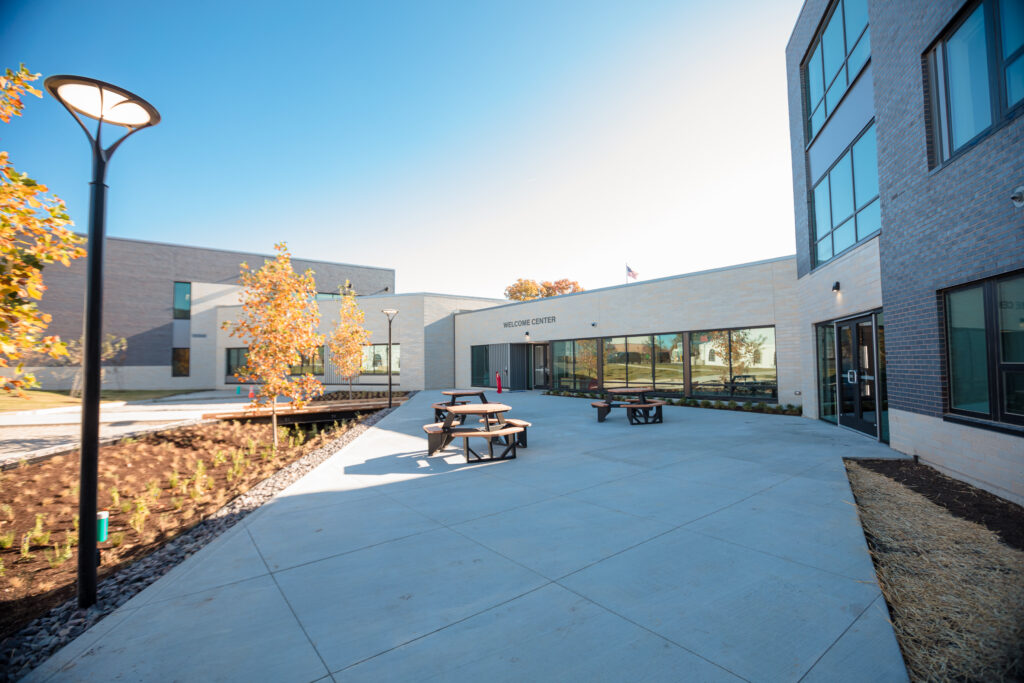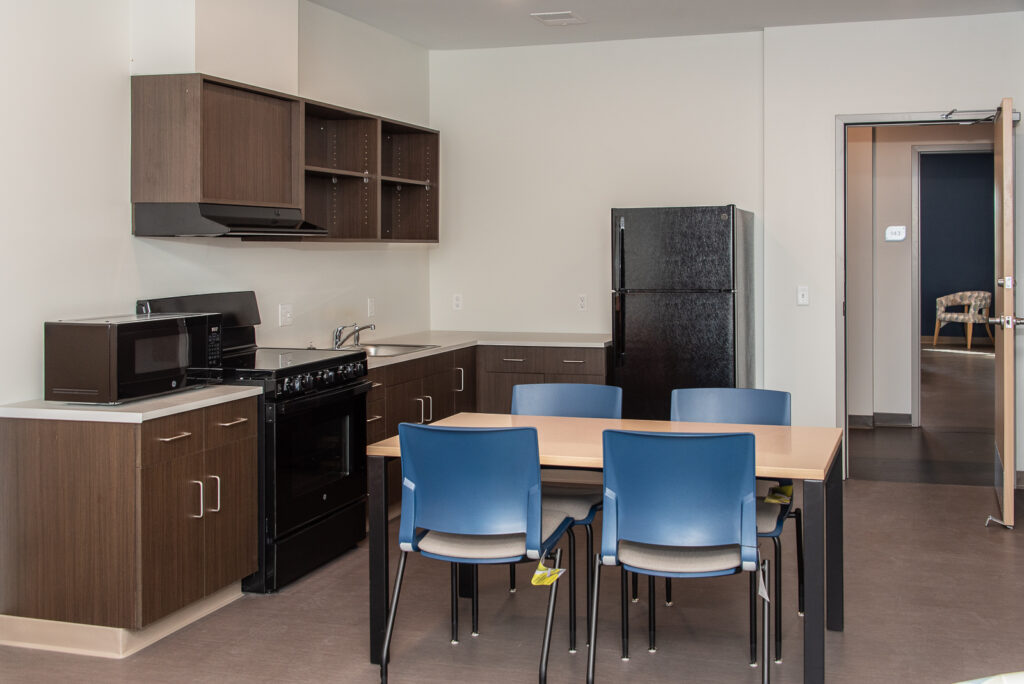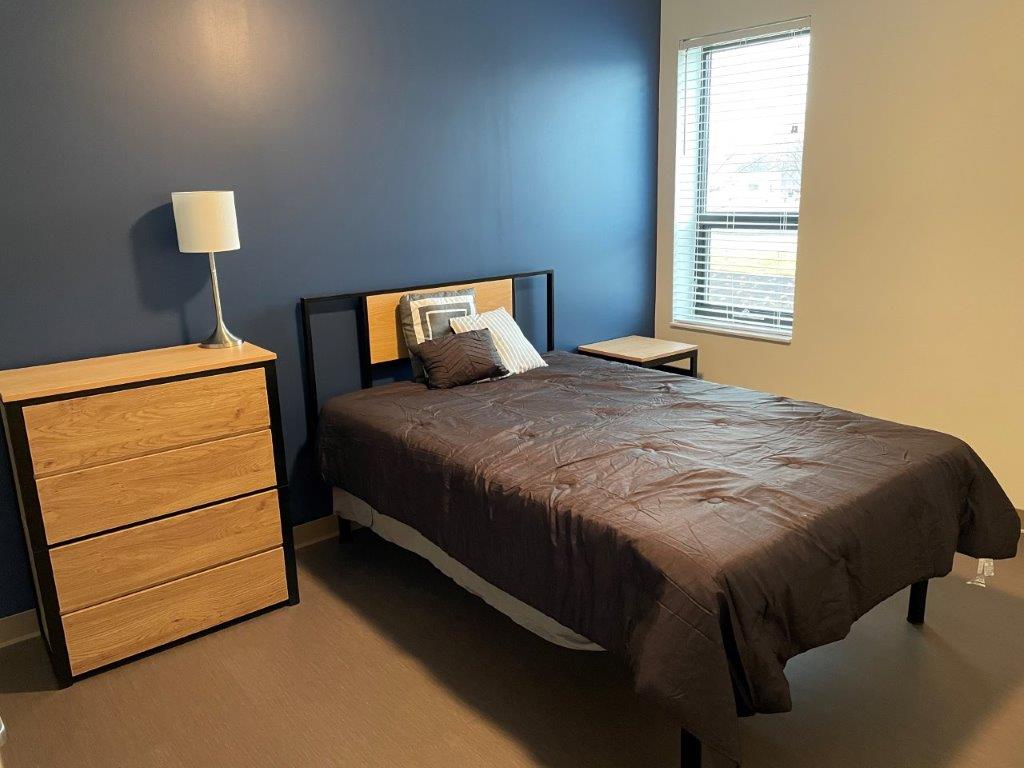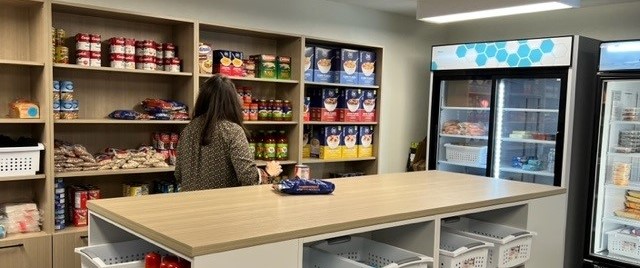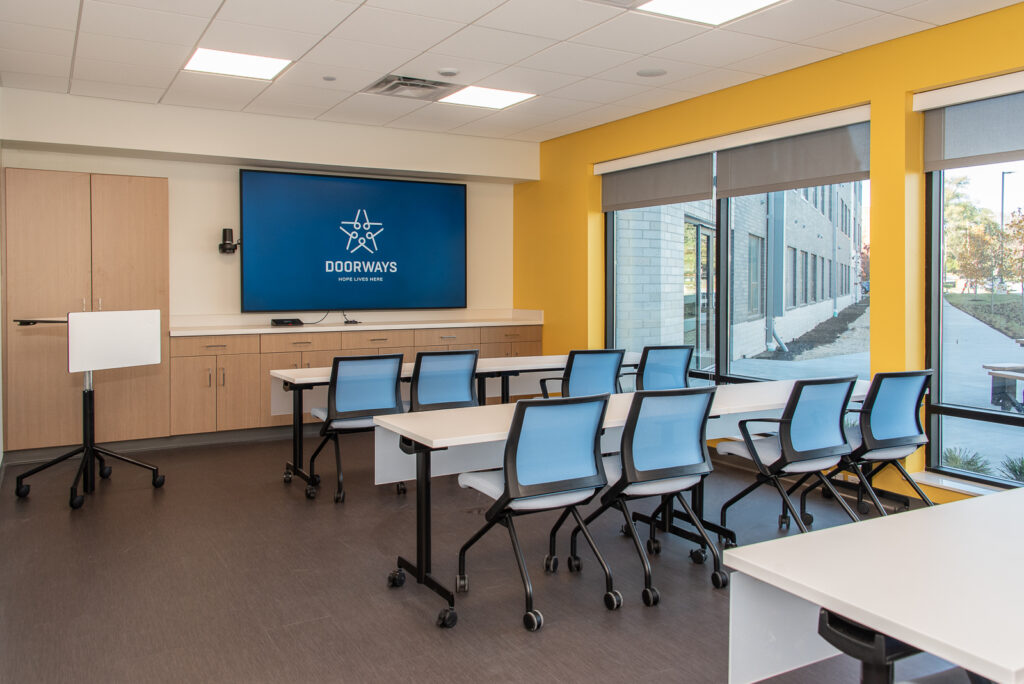Who
Historically, once housed with DOORWAYS, client stabilization begins with referrals to supportive services at other provider offices scattered throughout the city. With growing depth and breadth of need among clients — including increased mental health and substance use challenges — many people were unable to navigate the barriers to care (scheduling, childcare, transportation, weather, etc.). Ongoing instability may lead to lapses in medical care leading to delayed viral suppression, which is vital for improved individual health as well as for stopping the spread of HIV as undetectable = untransmittable. In response, DOORWAYS built the Jefferson Avenue Campus to launch a pioneering model of care offering housing with 360 degrees of ONSITE comprehensive supportive services that will support 360 degrees of stabilization for residents.
What
Comprehensive Flexible Housing (CFH) manages two housing models on the campus–Allen House and Elliott Place. Allen house provides 50 apartments with flexible lengths of stay to allow residents to advance at their own pace. Elliott Place provides 39 permanent housing apartments. The on site supportive services are available to all DOORWAYS housing clients, removing access and navigation barriers. They synergistically combine to build the environments impacting improved health and quality of life — the social determinants of health (SDOH): housing, hunger, health, income, employment, education, community, etc. The SDOH are nurtured with onsite resources such as:
- An onsite provisions pantry and individualized support from FOOD OUTREACH to address food insecurity.
- Assistance with coordination of and transportation to medical visits, which are essential for managing chronic conditions associated with poverty and adhering to an HIV medication regimen to achieve undetectable status that stops forward transmission of the HIV virus.
- Individual and group behavioral health counseling plus 24-hour crisis intervention care.
- Individualized employment/career guidance enhanced with job training resources.
- A multi-media classroom for programs to fill gaps in learning created by a legacy of poverty. This can include formal education as well as skill-development, such as managing the instrumental activities of daily living such as budgeting on a limited income, maintaining an apartment, nutritious cooking, and so on.
- A community room and resident social events to encourage building a group of friends available as a support system and safety net.
- An onsite retail pharmacy that also provides free delivery services with the expectation to open a retail pharmacy on the northside of the campus.
- Private rooms where other agencies serving people living with HIV may meet with their clients, such as Ryan White medical case managers.
Success
CFH clients are able to remain in Allen House throughout their stabilization process without the pressure of a housing expiration date. Their success is measured by progress in strengthening the SDOH in general and maintaining viral suppression in particular. By advancing these areas, Allen House residents will move towards more independent living opportunities with increased stability. This includes relocating to the permanent housing building on campus, Elliott Place, or moving to housing beyond DOORWAYS.
·
For data on this housing program’s performance, please view our most
recent annual impact report located on our Transparency page.
If you are interested in assistance, please click here to go to the CLIENT PROCESS page. If you would like to speak to someone, please review the contact information for this DOORWAYS program on our staffing page. Office hours are Monday-Friday 8:30 a.m. to 5:00 p.m.
apartments offering flexible lengths of stay that are located on our Jefferson Avenue Campus along with 360 degrees of ONSITE comprehensive supportive services.
